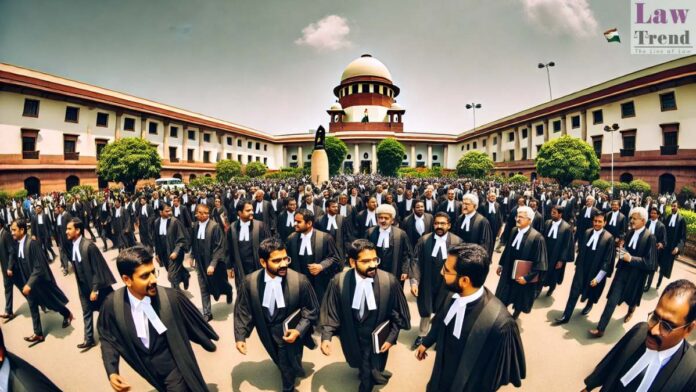A three-judge Bench of the Supreme Court comprising Justice Abhay S. Oka, Justice Ujjal Bhuyan, and Justice SVN Bhatti, in Jitender @ Kalla vs State (Govt. of NCT of Delhi) [Criminal Appeal No. 865 of 2025], referred key aspects of the senior advocate designation process laid down in Indira Jaising v. Supreme Court of India
To Read More Please Subscribe to VIP Membership for Unlimited Access to All the Articles, Download Available Copies of Judgments/Order, Acess to Central/State Bare Acts, Advertisement Free Content, Access to More than 4000 Legal Drafts( Readymade Editable Formats of Suits, Petitions, Writs, Legal Notices, Divorce Petitions, 138 Notices, Bail Applications etc.) in Hindi and English.




